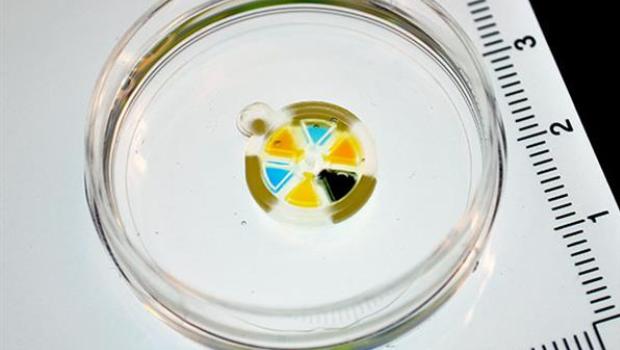A professor of biomedical engineering at the Columbia University of New York, Samuel Sia, has developed a 3D printed biobot which can be implanted in the body to administer controlled doses of medication. This device can be controlled from outside the body with the use of magnets.
For patients suffering from cancer, chemotherapy is the only choice of treatment left. It can lead to fatal adverse effects for the body like chronic pain, hair loss, nausea, fatigue, and the chance of infertility. Scientists are researching in this field to devise effective ways of delivering chemotherapy drugs. This 3D printing method involves fabricating micro machines that deliver correct drug doses from within the body.
These “biobots,” have been developed by Samuel Sia, a professor of biomedical engineering at New York City’s Columbia University. The research works of Sia and his team is published in Science Robotics. They have extensively explained this method that can produce features in biocompatible materials down to tens of micrometers, with detailed and numerous patterns in each layer. The scientists have created tiny devices that can release medicines into the body via magnetic signals.
For developing the drug dispensing machines, the Columbia biomedical engineers turned to 3D printing. They developed a machine that can deposit layers of the hydrogel to form solid shapes.
Next, they had to create the tiny devices. For this part, the researchers used the clockwork method. These hydrogel-based micromachines really do function like a clock and are capable of regular rotation and clicks forward when an external magnet is directed at it. The “gear” of the biobot is a squishy component containing iron nanoparticles.
There were several challenges for Sia’s team. The tiny devices needed to be compatible with the human body. But they also needed to be resilient enough to withstand the internal structure of the human body.
With drug ingestion devices like these, doctors will someday deliver drugs into the human body for chronic and fatal diseases. This device was tested on mice with cancer and the growth of tumors was notably slow in mice ingested with the device.
Source: 3ders.org
